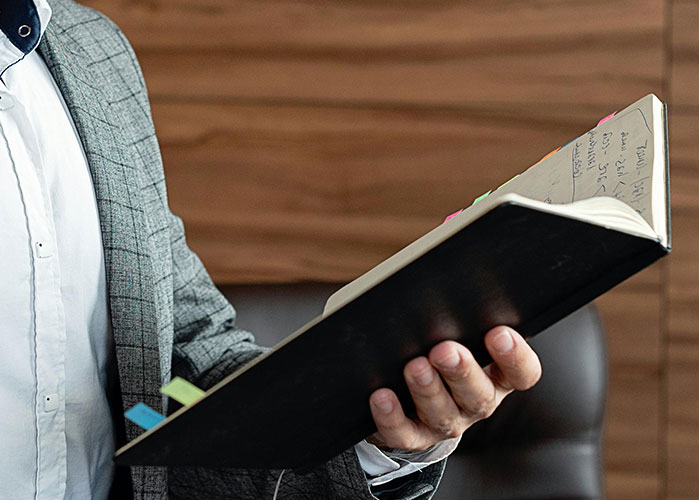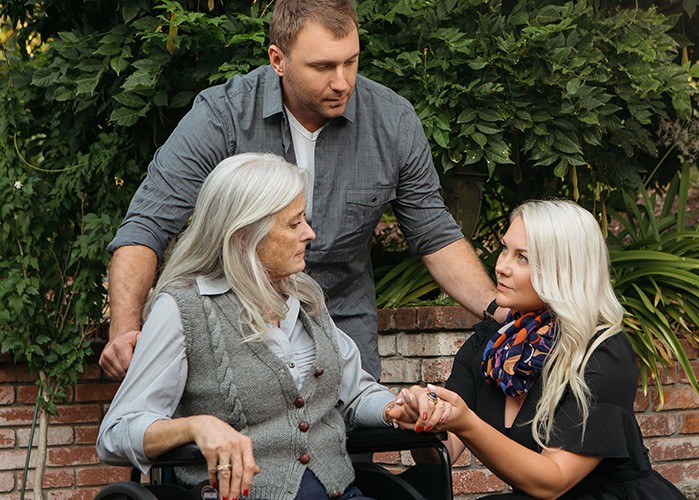Causes of Recurrent Falls in the Elderly + Prevention Techniques
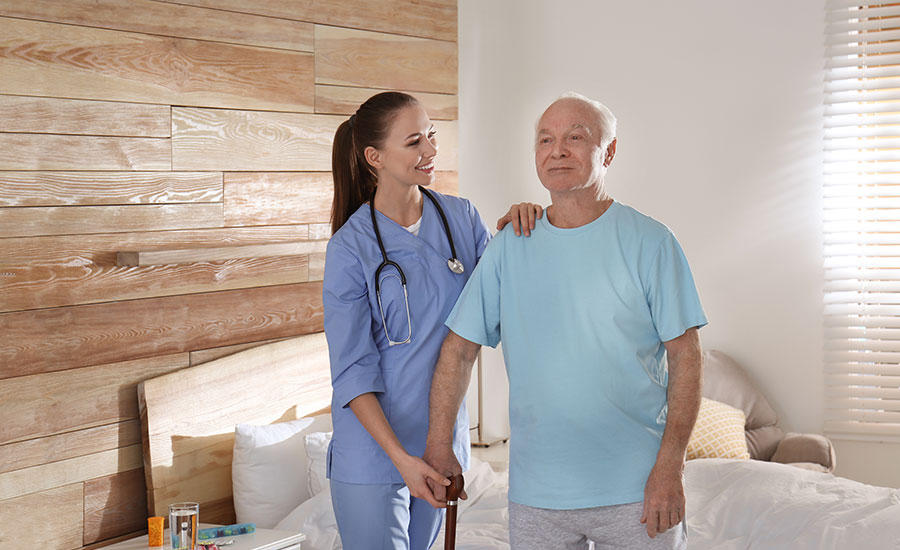
Caused by a variety of factors, including poor balance, fall risk medications and chronic health conditions, recurrent falls in the elderly can greatly impact independence and overall quality of life.
We’ll share the most common causes of recurrent falls in the elderly, along with treatment and preventive tips, so you can improve your loved one’s safety and help them enjoy their golden years with confidence and dignity.
We’ll also explain how our team at Always Best Care Senior Services can help with fall prevention by assessing fall risk and creating a comprehensive care plan using our Balance Tracking System.
Table of Contents
Most Common Causes of Recurrent Falls in the Elderly
Falls among the elderly can often be recurrent due to a variety of factors, including:
- Foot problems: Various foot problems, including pain, bunions, or simply ill-fitting footwear can lead to instability and a heightened risk of falls.
- Fall risk medications: These medications can increase the risk of falls, particularly in the elderly. Medications such as antidepressants, antihypertensives, and antidiabetic drugs can cause side effects that affect balance, coordination, and alertness, making individuals more susceptible to falls.
- Poor balance: Changes in muscle mass, strength, and coordination can lead to poor balance. Conditions like sarcopenia — the loss of muscle mass — commonly occur with age and can increase the risk of falls.
- Environmental hazards: The home or community environment can present numerous safety hazards to the elderly, from loose rugs or cluttered floors to poor lighting, lack of handrails or uneven sidewalks.
- Declining vision, hearing, and reflexes: With age, the senses may not be as sharp as they once were. Decreased vision can make it hard to see obstacles, reduced hearing can affect balance, and slower reflexes can make it more difficult to stop a fall.
- Chronic health conditions: Conditions such as Parkinson’s disease and diabetes can increase the risk of falls. Symptoms of Parkinson’s disease include tremors, muscle stiffness (rigidity), bradykinesia (slowness of movement), and postural instability, which affect balance and coordination. On the other hand, diabetes can lead to peripheral neuropathy (numbness in the extremities), which can also affect balance.
- Incontinence: Urgency and increased frequency of urination that leads to regular trips to the bathroom (potentially in the dark or while disoriented from sleep) can lead to trips and falls.
- Cognitive impairment: Even mild cognitive impairment can affect the mind’s ability to recognize hazards or remember how to navigate familiar environments safely.
Treatment for Recurrent Elderly Falls
Caring for an elderly loved one can bring a lot of joy, but it can also present challenges when they are suffering from a debilitating condition or at a risk of recurrent falls.
If your loved one has fallen or is experiencing balance issues, their healthcare provider might recommend the following:
1. Vitamin D and Calcium Supplements
Vitamin D and calcium supplements can help improve bone health and reduce the likelihood that a fall will cause a fracture.
Vitamin D aids in the absorption of calcium and phosphorus — two key minerals that are necessary for the formation and maintenance of healthy bones and teeth. Vitamin D deficiency can result in thinner and brittle bones.
On the other hand, calcium helps build and maintain strong bones. Calcium deficiency can lead to osteoporosis — a condition that occurs when bone mass decreases.
2. Medications Review
Fall risk medications can lead to side effects including drowsiness, confusion, and a sense of unsteadiness or dizziness, heightening the risk of a fall.
To address this concern, a physician can conduct a comprehensive review of fall risk medications.
This allows them to evaluate the side effects of the medication your loved one is taking, so they can make necessary adjustments to the treatment plan, whether reducing the dosage or recommending safer alternatives.
3. Fall Risk Assessment
A fall risk assessment evaluates the risk of falling. This assessment is used to observe the elderly or those with medical conditions that can contribute to falls, such as Parkinson’s disease, arthritis, or diabetes.
Typically, a fall risk assessment includes a review of the individual’s balance and gait (manner of walking), medical history, and home safety. After the evaluation is conducted, a prevention plan can be created and put into place.
4. Eyesight Assessment
Regular eye exams can help detect and treat vision issues that may contribute to falls.
With age, conditions such as glaucoma, cataracts, and macular degeneration become more common and can significantly impact vision.
If cataracts are impairing vision, cataract surgery can be performed. In fact, cataract surgery can significantly reduce the risk of falls in the elderly by improving visual acuity — the ability of the eye to identify shapes and objects at a given distance.
5. Hip Protectors
Most hip fractures are the result of falls in the elderly. Hip protectors — garments that are designed to prevent a hip from breaking during a fall — can help prevent fractures. These devices work by safeguarding the hip bone with a soft, thin pad.
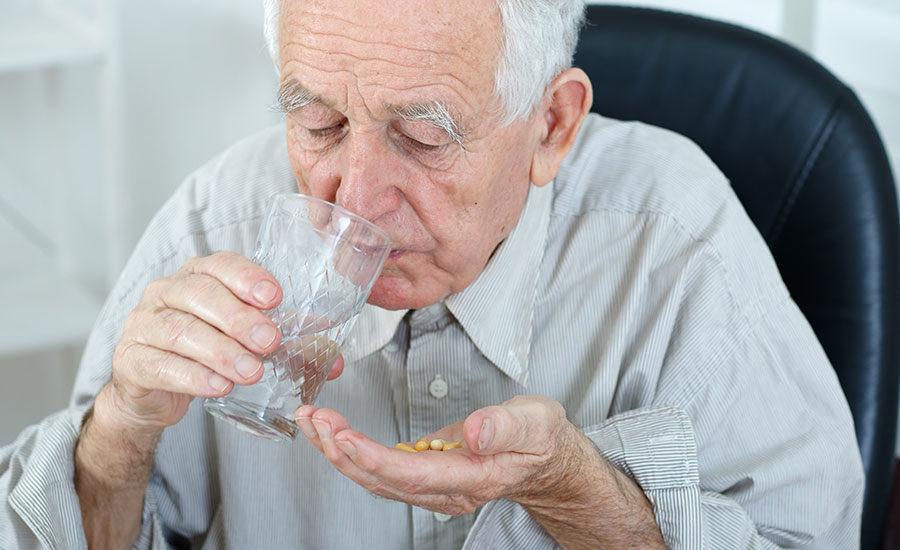
How To Prevent Elderly Falls
When it comes to recurrent falls in the elderly, prevention is key, as fall incidents can result in serious injuries, loss of independence, and a decrease in overall quality of life.
To help prevent falls:
- Create a safe home environment: Remove tripping hazards such as loose rugs, clutter, and electrical cords from walkways. Make sure your loved one’s home is properly lit, handrails and grab bars are installed in the bathroom or along the stairway, and a seat is added in the bathroom to further improve safety.
- Encourage regular exercise: Encourage your loved one to practice gentle exercises such as walking, swimming, toe raises, and sit-to-stand exercises to improve their strength, balance, and coordination, which can help prevent falls.
- Schedule regular health check-ups: Regular check-ups can help identify any health issues that might increase your loved one’s risk of falling, from conditions that affect balance to conditions that impact memory.
- Ask your loved one to undergo a fall risk assessment: Through a fall risk assessment, you can gain valuable insights into your loved one’s balance, strength, coordination, and overall risk factors for falls.
- Encourage your loved one to eat healthy meals: Make sure your loved one has access to meals that are rich in calcium and Vitamin D to help maintain their bone strength and prevent conditions like osteoporosis, which can increase the risk of falls and injuries.
- Provide your loved one with assistive devices: Make sure your loved one uses assistive canes, walkers, or mobility scooters if needed for extra stability and balance.
- Talk to your loved one about fall risks: Make sure your loved one understands the potential side effects of their medications and the importance of fall prevention.
- Make sure your loved one wears the right footwear: Ill-fitting or slippery shoes can increase the risk of falls. Make sure your loved one wears non-slip footwear that’s the right size and fit.
- Make sure your loved one visits the optometrist for regular eye exams: Regular eye exams are crucial for your elderly loved one, as poor vision can increase the risk of falls. Make sure your loved one undergoes vision tests every two years and their glasses are worn as advised.
- Consider installing medical alert systems: Medical alert systems can be beneficial for the elderly and particularly for seniors who live alone. At-home medical systems and on-the-go wearables allow your loved one to call for help in case a fall occurs.
- Make sure your loved one stays hydrated: Remind your loved one to drink six to eight glasses of water throughout the day, as dehydration can lead to dizziness and loss of balance.
- Make sure your loved one gets enough sleep: Encourage your loved one to aim for seven to nine hours of sleep per night to prevent sleep deprivation, which can increase the likelihood of falls.
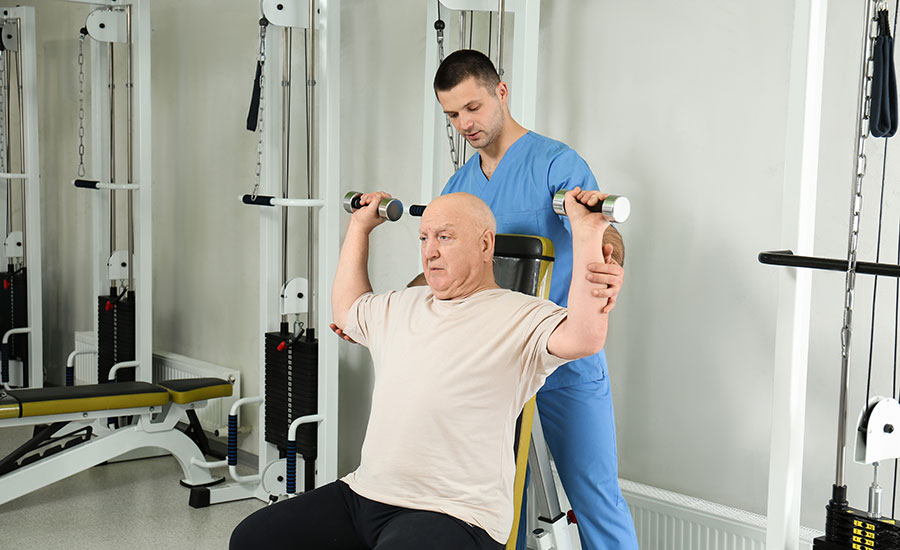
Preventing Recurrent Falls in the Elderly With Always Best Care Senior Services
Always Best Care Senior Services was established with the mission of delivering superior care, unwavering support and reliable assistance to the elderly community.
As a widespread network with over 200 locations, we acknowledge that each individual has unique needs — that’s why we provide a personalized approach to every client.
We thoughtfully construct a customized plan for every senior in our care based on their needs, including fall prevention for our elderly clients.
This care plan is based on the results of a thorough fall risk assessment, which is evaluated by our care team using our Balance Tracking System.
Our skilled and reliable caregivers are steadfast in their commitment to ensuring that your loved one is safe and looked after, while nurturing their sense of independence and dignity.
Our fall prevention services allow us to:
- Ensure a safe living environment for your loved one by proactively identifying and addressing potential risk factors in their home
- Offer a hand with personal care services, including help with dressing, bathing, and mobility-related tasks to foster independence while ensuring safety
- Provide supportive assistance with everyday tasks that could potentially increase the risk of falls
Our additional care services at Always Best Care include:
- In-home care services: We offer around-the-clock care, fall prevention services, heartfelt companionship, careful nutrition monitoring and thoughtful meal preparation. Our reliable caregivers ensure that your loved one is looked after in the comfort of their own home.
- Skilled home health care: At some Always Best Care locations, we offer home care plans tailored to accommodate your loved one’s specific needs, whether illness recovery or chronic disease management.
- Respite care: We offer temporary comprehensive care for your loved one, so you can catch up on sleep, spend quality time with other family members or manage other errands. You can confidently step away knowing that your loved one is in expert hands.
- Specialized home care: We keep a close eye on your loved one’s health by utilizing state-of-the-art care methodologies and cutting-edge technology, such as remote patient monitoring, digital balance assessments, and a user-friendly personal emergency response system to ensure optimal health management.
- Senior living referral services: We help you make well-informed decisions regarding your loved one’s living arrangements, including recommendations for top-rated and reliable assisted living communities that offer 24/7 emergency care, medical services, personal care, housekeeping, and engaging social activities.
- Veterans assistance program: We provide temporary care for your loved one, so you can take a much-needed break. Whether you need to catch up on sleep, spend quality time with other family members, or attend to other responsibilities, you can rest easy knowing your loved one is in the hands of compassionate health professionals.
Final Notes on Recurrent Falls in the Elderly
Recurrent falls in the elderly are a significant health concern and are often a result of a variety of factors, such as reduced muscle strength and balance, visual impairment, cognitive decline, and increased vulnerability to health conditions like osteoporosis and diabetes.
External factors such as inappropriate footwear, home safety hazards, and fall risk medications can also increase the risk of falls.
At Always Best Care Senior Services, we can help your loved one maintain a secure and well-kept living environment, while assisting them with everyday tasks that can potentially lead to falls, to improve their safety and engage in active fall prevention.
Our dedicated team, consisting of compassionate and expert professionals, is committed to offering outstanding care for our clients. Contact us today to find out how we can help you provide the best care of your loved one.


